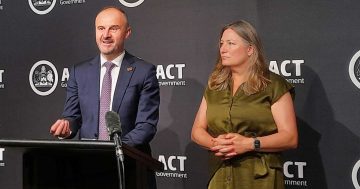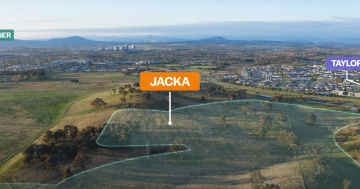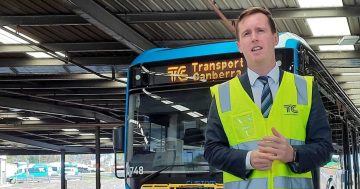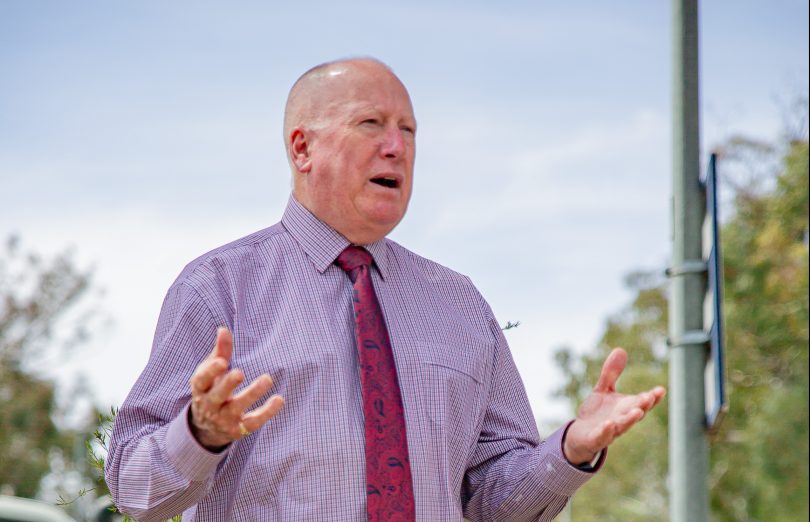
Planning Minister Mick Gentleman said the current planning system was “unruly” and in need of work. Photo: File.
The property industry has thrown down the gauntlet to each of the Assembly’s political parties on where and how they’ll fund light rail’s next stages and how to fix a planning system that many believe is dysfunctional and broken.
Speaking to a roomful of local industry figures at the Property Council’s election debate, Planning Minister Mick Gentleman, Liberals planning spokesman Mark Parton and Greens leader Shane Rattenbury were held to account by a sector that accounts for a substantial chunk of the Territory’s economy.
The industry says Stage 2 light rail project planning needs to start now, and that whoever is in Government must guarantee a minimum apprentice and trainee requirement for the only major infrastructure project on the ACT’s horizons in difficult times.
The Master Builders Association has previously questioned why the ACT Government won’t reveal their planning intentions for Stage 2, and whether high-density development is envisaged around Deakin, Yarralumla and Forrest.
While the ACT building industry has held up better than many others in Australia, the event heard that 1300 jobs have gone from the sector since 14 March, the forward pipeline of jobs is declining and major projects have been cancelled or delayed.
Master Builders CEO Michael Hopkins said the ACT found itself “in a globally competitive fight for scarce private sector investment”. Business-friendly policies were required to make sure capital is invested in the ACT, he said, but nobody should take economic growth for granted.
“The local property and construction sector is a vital part of our economy. We are the second-largest private-sector employer in the ACT and raise $1 billion in taxes annually. The taxes that you in the audience pay will fund the election promises that are currently being made to win your vote.”
Mr Hopkins called for locally privatised tender processes, support for apprentices, building quality reform and completing the current planning review.
But, he said, there was no detailed planning vision for the light rail corridor to Woden to date, a lack of commitment in the Building Confidence Report and no guarantees around employing apprentices on major ACT Government funded projects.
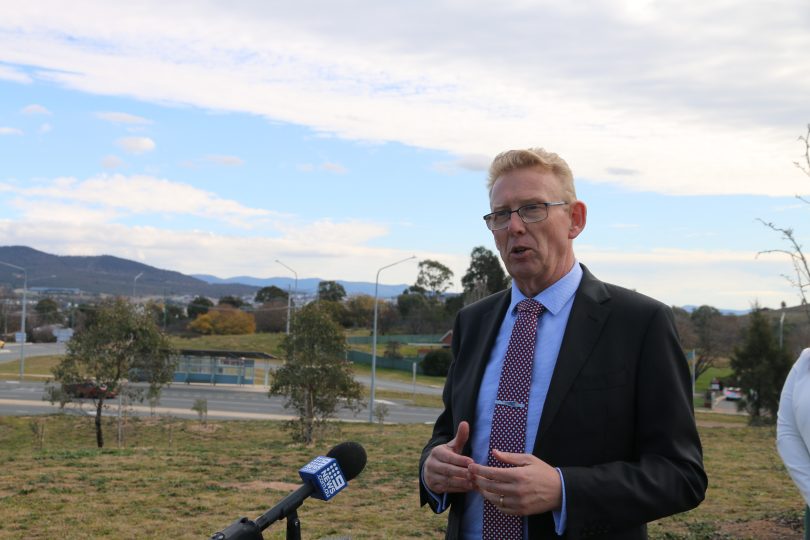
Liberals planning spokesman Mark Parton has called for “planning honesty”. Photo: Dominic Giannini.
During the debate, Liberal planning spokesman Mark Parton committed to the Shergold Building Confidence Report, and all three politicians responded positively to implementing better Design Review Panel timeframes.
But there was no clarity on the timeline for unlocking the Woden light rail corridor and no nominations for any other major infrastructure projects to kickstart the city’s post-COVID-19 economy.
Calling for “planning honesty”, Mr Parton promised to both “honour the heritage and promote the sustainability” of the city.
He said the Liberals would create 1200 social and affordable housing units, guarantee green space and consultation, enhance opportunities for dual occupancy and process development applications within the statutory time frames.
More social housing was also on the agenda for the Greens, who characterised the pandemic’s aftermath as a chance for a better future and a thorough examination of “how we put ourselves back together”.
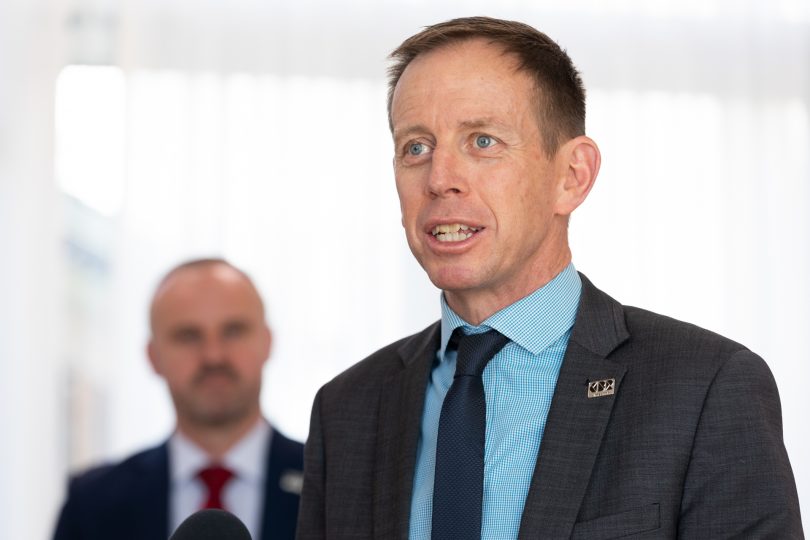
Shane Rattenbury has committed the Greens to more public housing. Photo: Michelle Kroll
Mr Rattenbury said 1000 new social housing units would produce 3000 jobs, and also promised a community compact where consultation on development would be prioritised, and a deal on green plot ratios.
And, he said, the Greens would argue for reform on land releases “for quality outcomes, not just the top dollar”.
Planning Minister Mick Gentleman was frank in acknowledging the lack of trust with the current planning system, describing is as “unruly” and in need of work.
“It currently relies on rules and we need to change that, but we can’t change it overnight,” he said.
“We’re preparing for transformation to an outcomes-based system.”
Mr Gentleman said the government needed to balance sustainability with growth. The current major planning review continues and Mr Gentleman has said during the election campaign that it will be delivered early in the next term if the government is re-elected.












